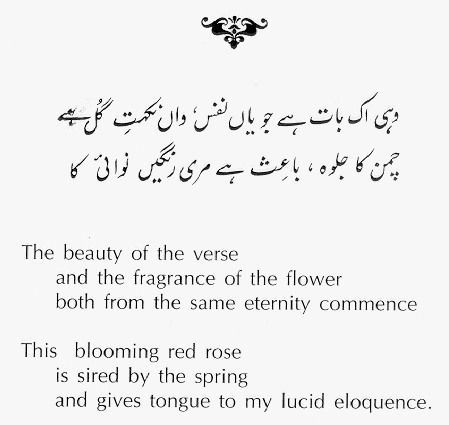 ======= Literal translation by FWP: /it is the very same thing that here is breath, there is rose-scent the radiance of the garden is the cause of my colorful-voicedness/ {24,6} |
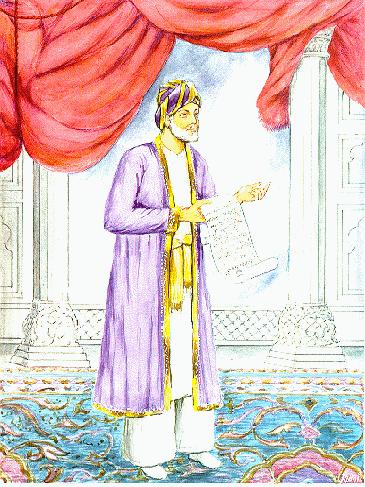 |
 ======= Literal translation by FWP: /it is the very same thing that here is breath, there is rose-scent the radiance of the garden is the cause of my colorful-voicedness/ {24,6} |
 |
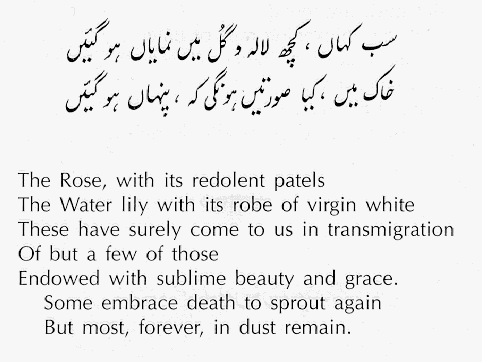
======= Literal translation by FWP: /not all! some became manifest in tulip and rose in the dust what faces/aspects must there be, that became hidden/ {111,1} |
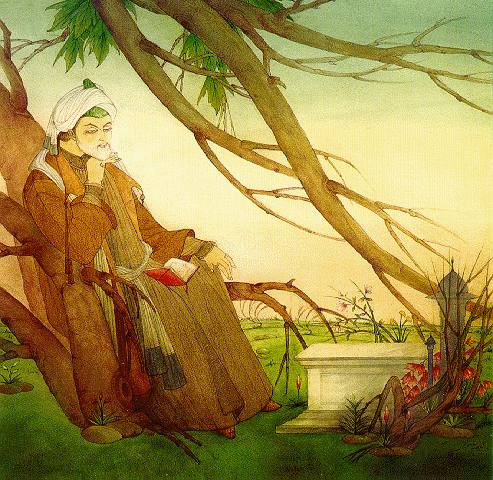 |
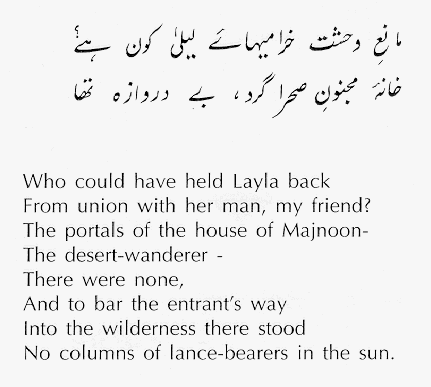 ======= Literal translation by FWP: /who is the forbidder of the wildness-roamings of Laila? the house of Majnun the desert-wanderer was without a door/ {18,3} |
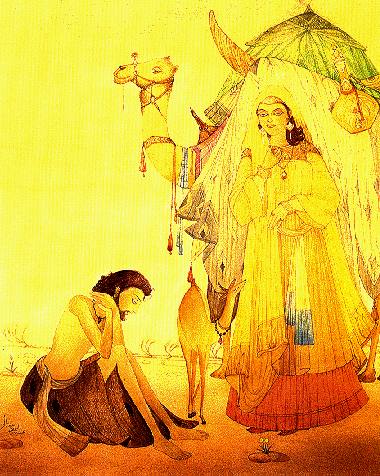 |
On that website the translations are attributed to: Ghalib interpretations: translation of Ghalib's selected verse, by Riaz Ahmed (Rawalpindi: Ferozsons, 1996)
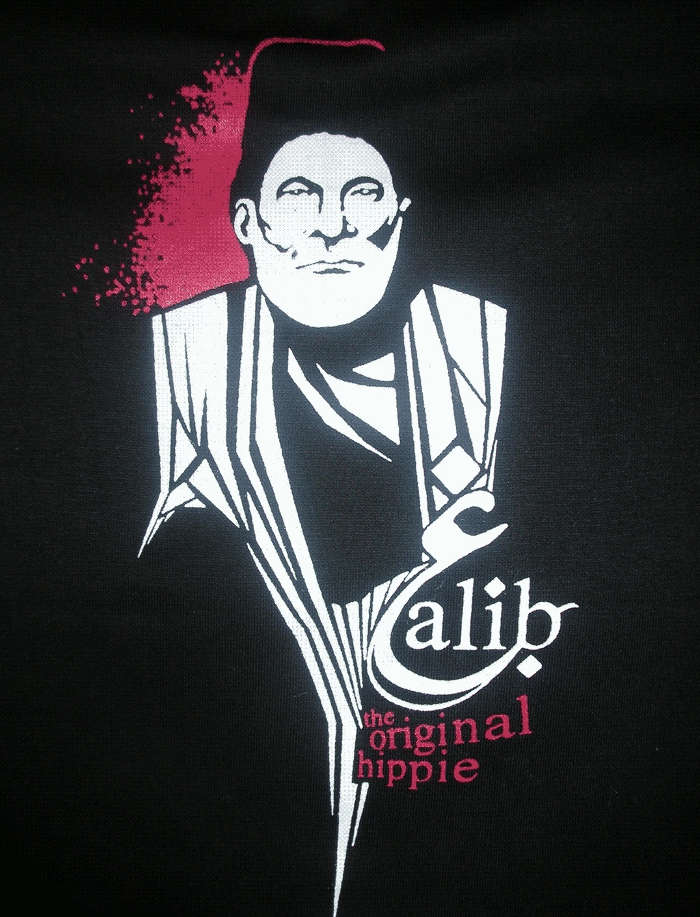
== Indian Routes index == Indian Routes sitemap == Glossary == FWP's main page ==